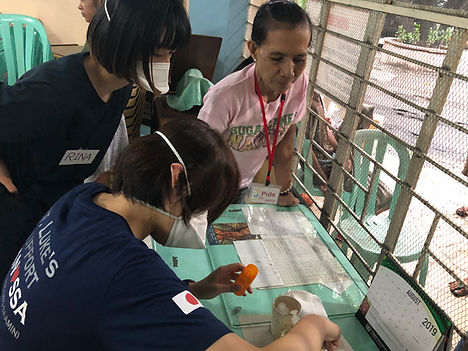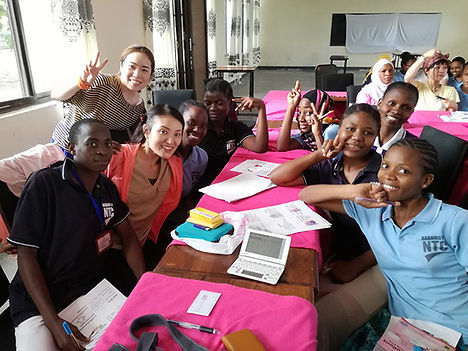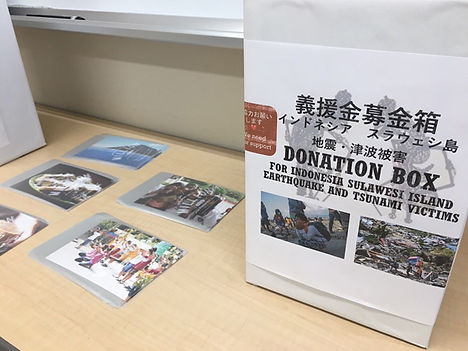"Leave no one left behind"
Global Health Nursing Laboratory,
St. Luke's International University

Social Contribution Activity
The Global Health Nursing Laboratory conducts social contribution activities to improve the health of people in Japan and around the world through research and extracurricular activities.







Cochrane Activities
Cochrane is an international network of non-profit organizations based in the United Kingdom. There are Cochrane members and supporters in more than 190 countries around the world, collecting and synthesizing the best evidence from research. In Japan, Cochrane Japan was established in 2014 as the Japanese branch of Cochrane. In 2016, it became an independent Cochrane Japan Center. Cochrane Japan Center provides support and training to produce Cochrane systematic reviews and promote science-based decision-making in healthcare and policy in Japan. As of 2022, Professor Ota from this lab is the Vice President of the Cochrane Japan Center, and alumnus Yamaji is a member of the Board of Directors (Cochrane Japan website: https://japan.cochrane.org/ja).
Therefore, although the students in our lab have different areas of expertise, they can learn the latest methods of systematic review. They collect, synthesize, and provide information on the best evidence for their research questions.
WHO guideline development
Recently, the approach to guideline development has been to use the results of systematic reviews which synthesize existing evidence to develop recommendations. Many WHO guidelines have been developed based on Cochrane reviews. Under the leadership of Professor Ota, we contribute to the development of WHO guidelines by conducting the systematic reviews required for WHO guidelines. We also contribute to the WHO guideline development team as experts in the methodology of the WHO guidelines.
WHO guidelines, etc., that we have contributed to so far
-
WHO estimates of the global burden of foodborne diseases Foodborne diseases burden epidemiology reference group 2007-2015 (2013)
-
WHO Global Nutrition Targets 2025: Low Birth Weight Policy Brief (2014)
-
WHO Preterm guideline(2014)
-
WHO recommendation for prevention and treatment of maternal peripartum infections (2015)
-
WHO recommendations on antenatal care for a positive pregnancy experience (2016)
-
WHO Zika virus guidance (2015)
-
WHO recommendations for breastfeeding (2016)
-
WHO recommendations for anaemia (2017)
-
WHO recommendations on antenatal care for a positive pregnancy experience update (2020-2021)
Asbestos disease care
Associate Professor Nagamatsu has supported the management of asbestos diseases, which have increased rapidly in Asia in recent years, both domestically and internationally by giving lectures, developing materials for treatment for healthcare professionals, and conducting training. In 2014, she presented an educational lecture to Korean doctors and nurses. In 2022, based on the opinions and wishes of patients and their families, she developed educational materials and held training sessions for healthcare professionals to improve the quality of care for patients and their families.
Other activities
In September 2018, an earthquake and tsunami occurred in Sulawesi Island in Indonesia, which we interact with as a research site. In response to the damage caused by this natural disaster, students in the Global Health Nursing Laboratory led a fundraising campaign. They donated the funds to a church in Sulawesi. The funds were used to build temporary toilets and distribute food to the local community. We would like to express our sincere gratitude to all those who supported our fundraising activities.
We also conduct activities as panelists and lecturers at academic conferences and other events.
